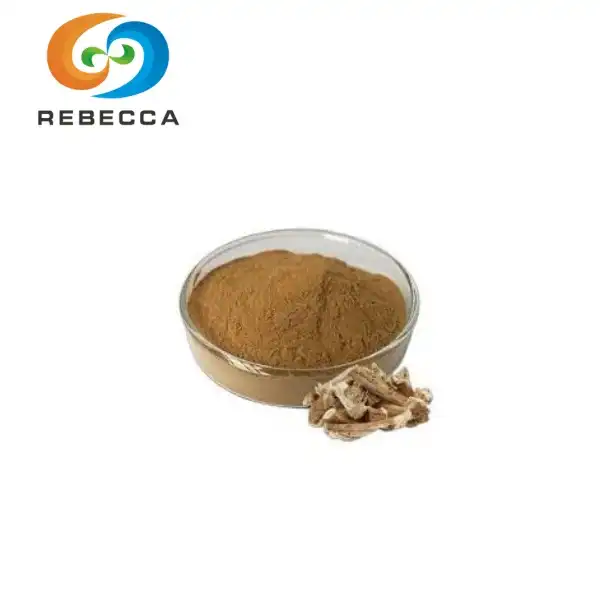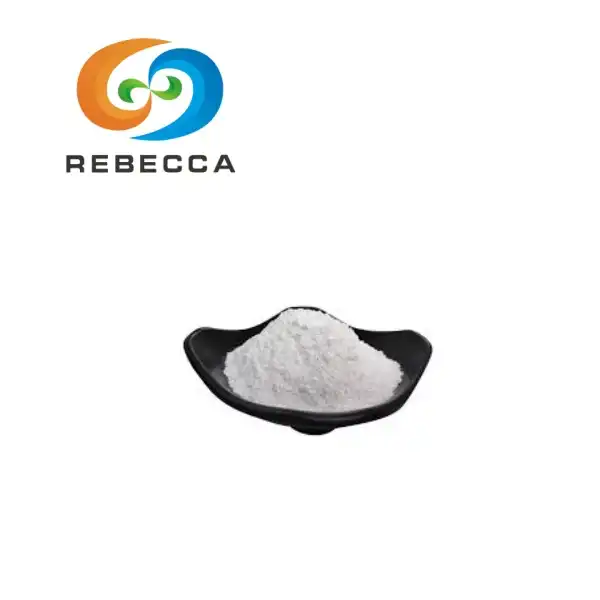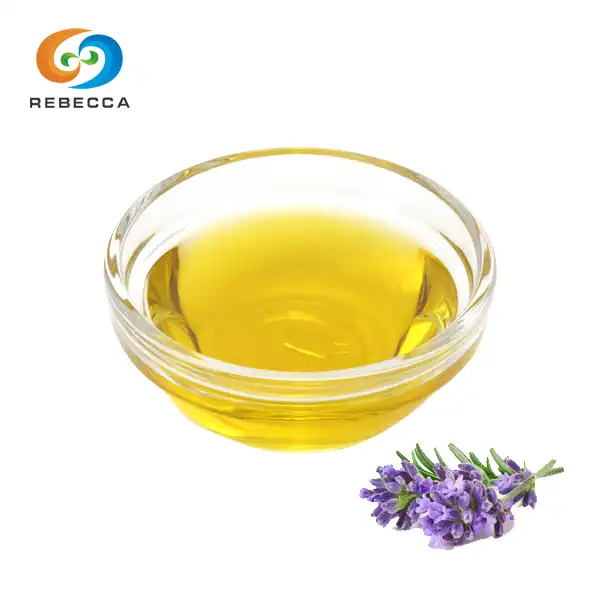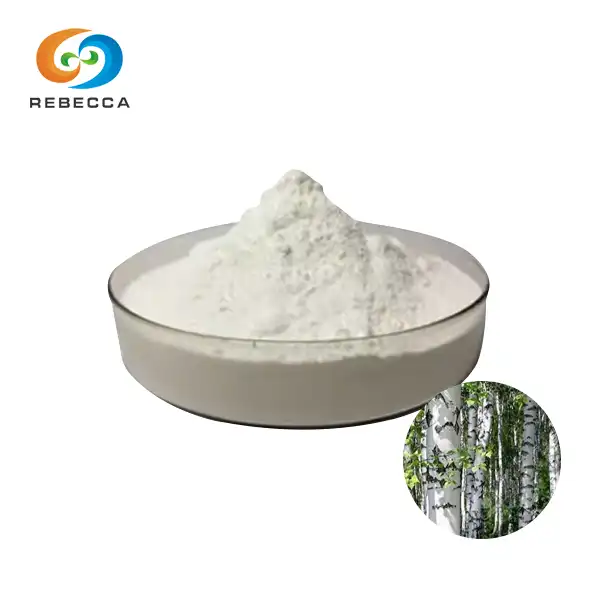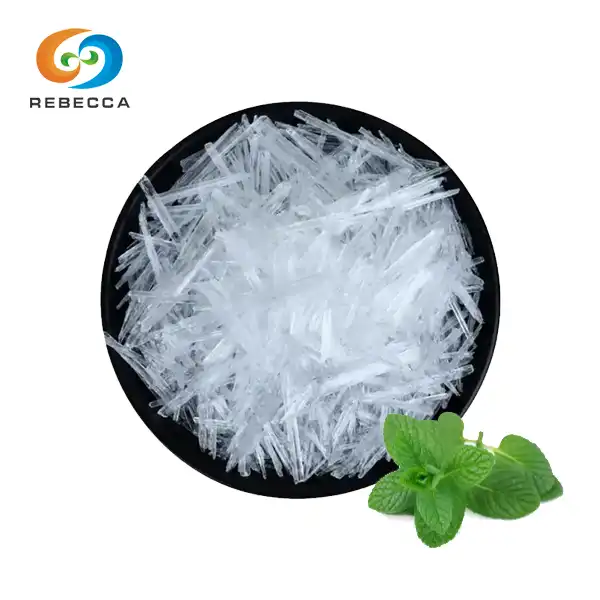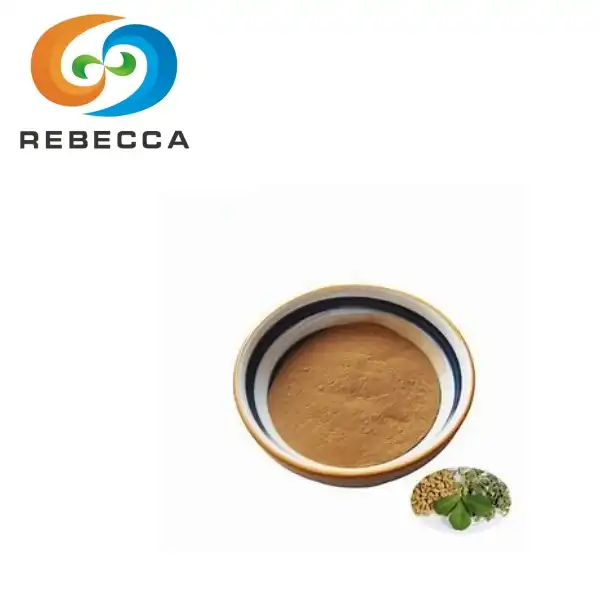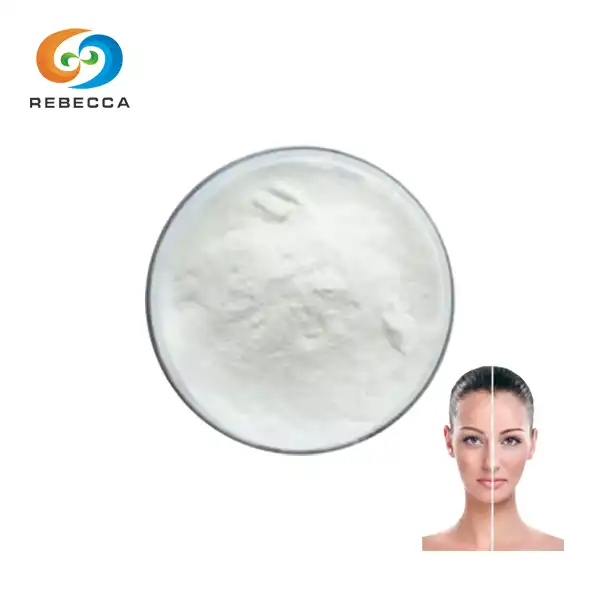What is fucoxanthin used for?
Fucoxanthin, a unique carotenoid found in brown seaweed like Laminaria japonica, has gained significant attention in the health and wellness community. This powerful compound offers a range of potential benefits, from supporting weight management to promoting overall health. In this comprehensive guide, we'll explore the various uses of fucoxanthin powder and how it may enhance your wellbeing.
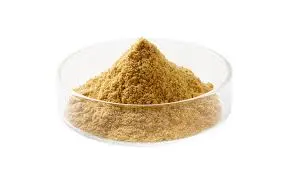
Fucoxanthin Powder for Weight Loss Support
One of the most prominent uses of fucoxanthin is its potential to aid in weight management. Research suggests that this marine-derived compound may help promote fat loss through several mechanisms:
Boosting Metabolism
Fucoxanthin has been shown to increase the expression of uncoupling protein 1 (UCP1) in white adipose tissue. This protein plays a crucial role in thermogenesis, the process of heat production in the body. By enhancing UCP1 expression, fucoxanthin may help increase energy expenditure and boost metabolism, potentially leading to greater fat burning.
Targeting Visceral Fat
Studies indicate that fucoxanthin may be particularly effective in reducing visceral fat - the dangerous fat that accumulates around internal organs. This type of fat is associated with an increased risk of metabolic disorders and cardiovascular diseases. By targeting visceral fat, fucoxanthin powder may contribute to improved metabolic health and a reduced waistline.
Regulating Fat Storage
Fucoxanthin powder appears to influence the expression of genes involved in lipid metabolism. It may help inhibit the formation of new fat cells (adipogenesis) and promote the breakdown of existing fat stores (lipolysis). This dual action on fat metabolism could contribute to its weight loss-supporting effects.

Top Health Benefits of Fucoxanthin Supplements
Beyond its potential for weight management, fucoxanthin offers a range of other health benefits that make it a versatile supplement for overall wellbeing:
Antioxidant Protection
Fucoxanthin is a potent antioxidant, capable of neutralizing harmful free radicals in the body. This antioxidant activity may help protect cells from oxidative stress, potentially reducing the risk of chronic diseases and supporting overall health. The unique molecular structure of fucoxanthin, including its unusual allenic bond and 5,6-monoepoxide, contributes to its powerful antioxidant properties.
Anti-Inflammatory Effects
Chronic inflammation is linked to numerous health issues, including cardiovascular disease, diabetes, and certain cancers. Fucoxanthin has demonstrated anti-inflammatory properties in various studies, suggesting it may help mitigate inflammation-related health risks. This anti-inflammatory action could be particularly beneficial for individuals dealing with conditions characterized by chronic inflammation.
Cardiovascular Health Support
Research indicates that fucoxanthin may have a positive impact on heart health. It has been shown to help regulate cholesterol levels, potentially reducing LDL ("bad") cholesterol while increasing HDL ("good") cholesterol. Additionally, its anti-inflammatory and antioxidant properties may contribute to overall cardiovascular health by protecting blood vessels and improving circulation.
Potential Neuroprotective Effects
Emerging research suggests that fucoxanthin may have neuroprotective properties. Animal studies have shown promising results in reducing cognitive impairment and protecting brain cells from damage. While more human studies are needed, these findings hint at fucoxanthin's potential role in supporting brain health and possibly mitigating age-related cognitive decline.
Skin Health Benefits
Fucoxanthin's antioxidant properties extend to skin health as well. Topical application of fucoxanthin has been shown to protect skin cells from UV radiation damage and reduce signs of premature aging. While most fucoxanthin supplements are taken orally, these findings suggest potential applications in skincare products.

How to Use Fucoxanthin Powder Effectively?
To maximize the benefits of fucoxanthin powder, it's important to use it correctly and understand its optimal application:
Dosage Considerations
While there is no officially established dosage for fucoxanthin, most supplements on the market provide between 3-10 mg per day. It's crucial to follow the manufacturer's recommendations or consult with a healthcare professional to determine the right dosage for your individual needs. Keep in mind that fucoxanthin is often combined with other ingredients like pomegranate seed oil to enhance its bioavailability.
Timing and Administration
For optimal absorption, it's generally recommended to take fucoxanthin powder with a meal that contains some fat. This is because fucoxanthin is fat-soluble, meaning it's better absorbed when consumed with dietary fats. Consider taking your fucoxanthin supplement with breakfast or lunch to ensure proper absorption.
Combining with Other Supplements
Fucoxanthin can be combined with other supplements to potentially enhance its effects. For example, some research suggests that combining fucoxanthin with fish oil may lead to greater weight loss benefits. However, always consult with a healthcare provider before combining supplements to ensure safety and avoid potential interactions.
Consistency is Key
As with many natural supplements, the benefits of fucoxanthin may take time to manifest. Consistent use over several weeks or months may be necessary to experience noticeable effects, particularly for weight management goals. Patience and adherence to a regular supplementation schedule are important for optimal results.
Lifestyle Considerations
While fucoxanthin powder can be a valuable addition to your health regimen, it's not a magic solution. For best results, combine fucoxanthin supplementation with a balanced diet, regular exercise, and other healthy lifestyle habits. This holistic approach will likely yield the most significant benefits for weight management and overall health.
Conclusion
In conclusion, fucoxanthin powder offers a range of potential health benefits, from supporting weight management to providing antioxidant protection and promoting cardiovascular health. Its unique properties make it a promising natural supplement for those looking to enhance their wellness routine. However, as with any supplement, it's essential to use fucoxanthin responsibly and under the guidance of a healthcare professional. If you're interested in exploring high-quality fucoxanthin powder or other natural herbal extracts, don't hesitate to reach out to us at information@sxrebecca.com for more information and personalized recommendations.
References
1. Maeda, H., Hosokawa, M., Sashima, T., Funayama, K., & Miyashita, K. (2005). Fucoxanthin from edible seaweed, Undaria pinnatifida, shows antiobesity effect through UCP1 expression in white adipose tissues. Biochemical and Biophysical Research Communications, 332(2), 392-397.
2. D'Orazio, N., Gemello, E., Gammone, M. A., de Girolamo, M., Ficoneri, C., & Riccioni, G. (2012). Fucoxanthin: a treasure from the sea. Marine drugs, 10(3), 604-616.
3. Gammone, M. A., & D'Orazio, N. (2015). Anti-obesity activity of the marine carotenoid fucoxanthin. Marine drugs, 13(4), 2196-2214.
4. Miyashita, K., Nishikawa, S., Beppu, F., Tsukui, T., Abe, M., & Hosokawa, M. (2011). The allenic carotenoid fucoxanthin, a novel marine nutraceutical from brown seaweeds. Journal of the Science of Food and Agriculture, 91(7), 1166-1174.
5. Hosokawa, M., Miyashita, T., Nishikawa, S., Emi, S., Tsukui, T., Beppu, F., ... & Miyashita, K. (2010). Fucoxanthin regulates adipocytokine mRNA expression in white adipose tissue of diabetic/obese KK-Ay mice. Archives of biochemistry and biophysics, 504(1), 17-25.
_1730691017423.webp)










